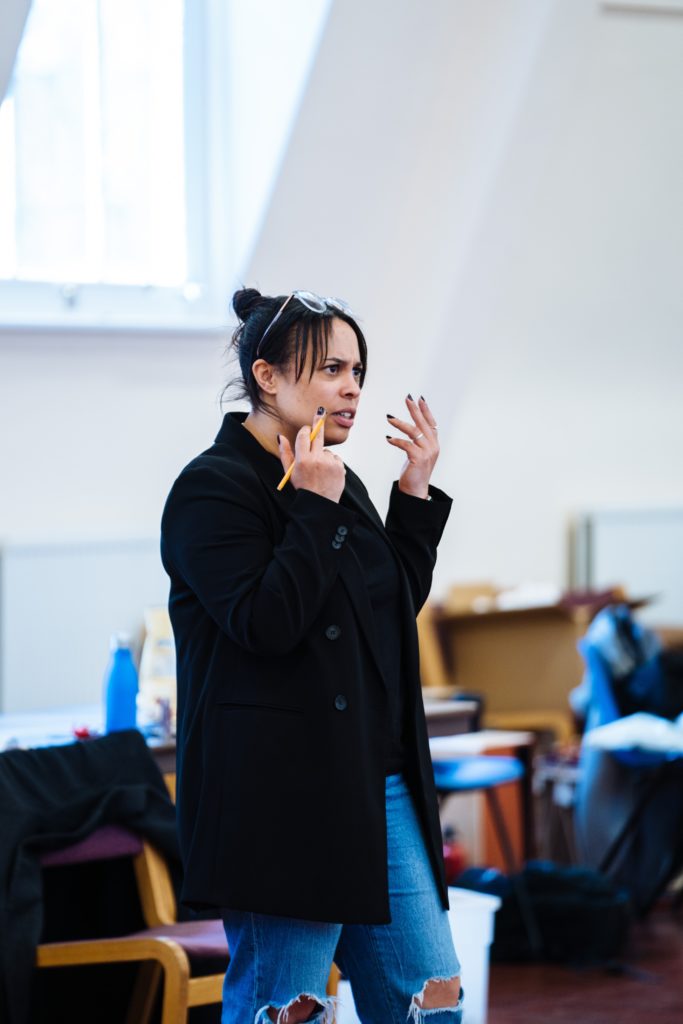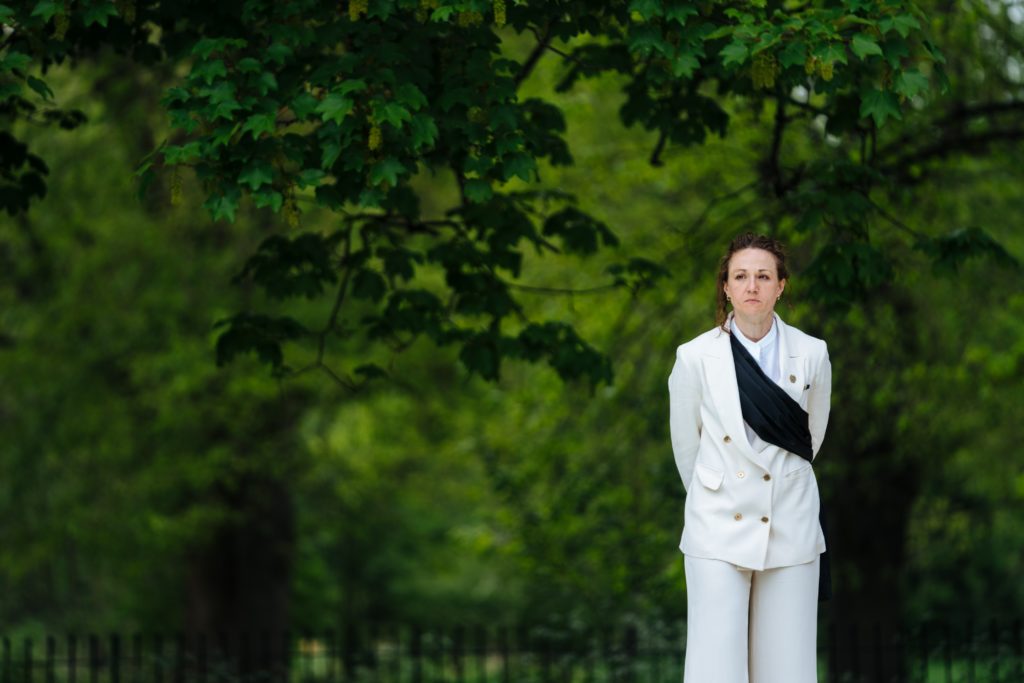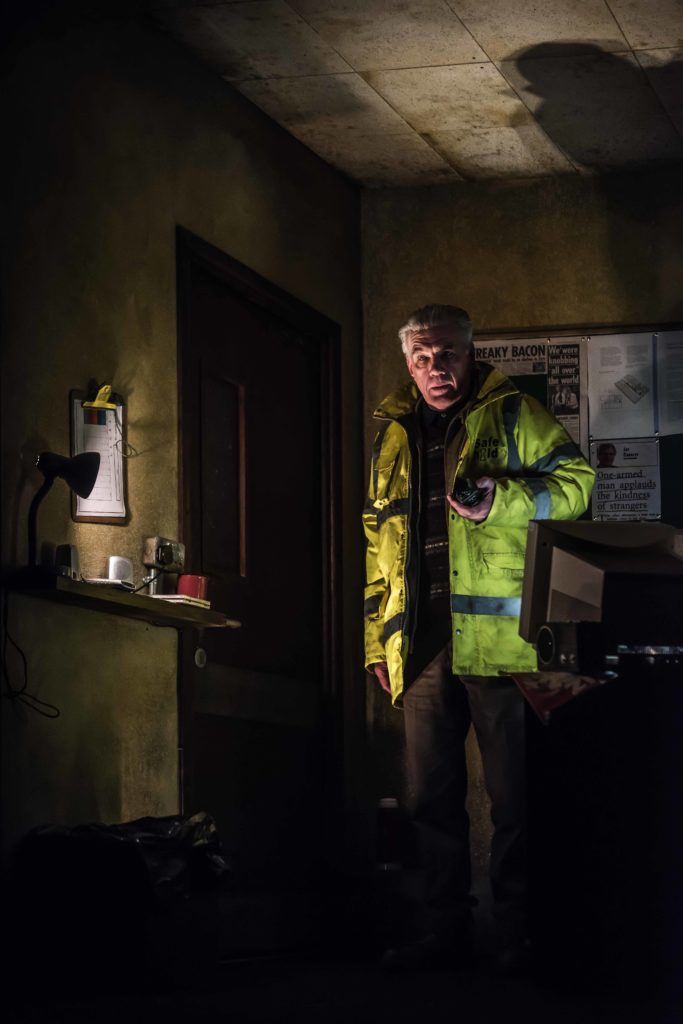
IN her school days, Diane Page decided Shakespeare was not for her.
And yet, look who is directing the Shakespeare’s Globe touring production of Julius Caesar as it plays York Theatre Royal from tomorrow (10/6/2022).
“Maybe because of the environment I was in – I was at quite an academic school, a comprehensive in New Cross – and I just thought, ‘Shakespeare isn’t for me’,” recalls the Londoner, who studied Shakespeare for her English Literature GCSE. “Being dyslexic made it even more difficult.
“But after I left school, one of the plays I read in my breaks when I worked as an usher in the West End was Julius Caesar and I really loved it. Then I read it again in lockdown and thought, ‘Gosh, this is a really amazing play that I want to direct’, seeing it through a contemporary lens, with some interventions to reflect now, but without changing the text.”
A year’s planning has gone into the production since Diane first took the idea to Shakespeare’s Globe artistic director Michelle Terry.
As attributed to Prime Minister Harold Wilson in a lobby briefing to journalists in 1964, “a week is a long time in politics”, and so the machinations of Shakespeare’s epic tragedy are being played out against a backdrop of the paranoid Vladimir Putin’s Russian invasion of neighbouring Ukraine and the populist but increasingly unpopular Boris Johnson’s night of the half-drawn knives with his splintering Conservative MPs on Monday.
“The links with today resonate through the play, but what really stands out is how characters are constantly reacting out of fear, which feels really interesting when related to our times, when you look at how power works and reflect on contemporary politics,” says Diane, who notes how “the play has these amazing speeches but they haven’t been thought of in that way”.
Page confronts today’s rising tide of regime change through the prism of Shakespeare’s brutal tale of ambition, incursion and revolution in Ancient Rome, where the conspiracy to kill, the public broadcast of cunning rhetoric and a divisive fight for greatness echo down today’s corridors of power.
Cassius and Brutus’s belief that Rome’s leader, Julius Caesar, poses a political threat to their beloved country could be matched by the rhetoric of Tory rebel MPs seeking to justify their motion of No Confidence in leader Boris Johnson (although more likely it is rooted in fearing the loss of their seats and a General Election defeat when seeking an unprecedented fifth successive term in power for the Conservatives).
“That’s something I’ve drawn on, both historically and from now: how society responds to a leader and what people want in a leader,” says Diane. “Particularly what we’ve drawn on is the contrast between the public persona of Julius Caesar and this frightened, paranoid leader in private.
“Tragically, throughout history, we’ve seen this idea of populism [in political leaders] and how long it lasts, and it’s fascinating that it happens again and again and again.
“One of the things we’re asking people as they watch the play now is, ‘what is it that we need to do differently when we’re voting for our leaders. We’re not drawing on any particular era or political figure in regard to Caesar, but when Trump was first happening, you think, ‘this will never happen’, then you think, ‘this might happen’, and then, ‘oh, it’s happened’. For me, part of Brutus’s flaw is to think that everyone will think the same, but history tells you a different story.”

Does Diane see parallels between Caesar and Putin? “It’s important to say that though it’s not explicitly written in the play, we do feel that Caesar does rule by imposing fear on others, but at the same time he’s fearful,” she says. “There’s also the paranoia that’s transmitted into the community around him.
“So it did feel like we had an extra responsibility to handle these subjects with sensitivity once Russia invaded Ukraine.”
Diane has cast two women, Charlotte Bate and Anna Crichlow, as Cassius and Brutus respectively. “As I read Julius Caesar in the first lockdown, I thought, ‘I think they’re women’. It was instinctual, in my exploration of power and women in power, so it was a very conscious choice, and casting Brutus as a black woman adds another dimension,” she says.
“In thinking about the theme of power, we’re asking what it means now, how it has transcended through the years, and what it means for women to be in power. If we’re still shocked by that, then we think, ‘well, just how many women are in power?’.”
“We know the play is based on historical events, but it’s been fictionalised by Shakespeare, so I felt we had artistic licence to look at what power means now, and those speeches transfer well to women speaking them.
“Looking at friendship between women brings another dynamic to it, and because Julius Caesar is such a masculine play, it’s interesting to flip it or re-angle it.”
Diane is asking questions, rather than providing answers, in her interpretation of Julius Caesar. “That’s how I feel about Shakespeare: his plays are so universal, whatever challenges someone may face, but for me, the production has to be about what the play means now, though the words remain exactly the same,” she says.
“It did feel important, with such a masculine play and with what’s happening now, to ask questions about women in power. If a play is about us, then it is for us to think about these questions and to discuss them.”
Roll on tomorrow and Saturday’s performances at York Theatre Royal as Diane’s production moves indoors for the first time after open-air shows at the Globe and on tour. “I’ve written a comprehensive plan for my assistant because I’m now working on another show,” she says.
“It’s going to take some adapting because outdoors we use the yard or where the audience are seated, and indoors there’ll be different logistical needs, but not so many that it’ll become distinct from the outdoor performances.”
Shakespeare’s Globe On Tour presents Julius Caesar, York Theatre Royal, tomorrow, 7.30pm; Saturday, 2.30pm, 7.30pm. Box office: 01904 623568 or yorktheatreroyal.co.uk.
Copyright of The Press, York

Who is Diane Page, award-winning theatre director?
Training: MFA in theatre directing, Birkbeck, University of London; BA in theatre and drama studies, first class honours, Birkbeck, University of London.
Award winner: 2021 JMK Award for her production of Statements After An Arrest Under The Immorality Act.
Shakespeare’s Globe work: Assistant director for Bartholomew Fair, 2019; director for Julius Caesar, Globe On Tour, from April 2022.
Theatre as director: Lost And Found, Royal Opera House, London; Statements After An Arrest Under The Immorality Act, Orange Tree Theatre, Richmond; Out West, co-director, Lyric Hammersmith Theatre, London; In Love And Loyalty, also writer, Lyric Hammersmith Theatre.
Theatre as associate director: Ghost Stories, West End and UK tour, playing Grand Opera House, York, in March 2020.

